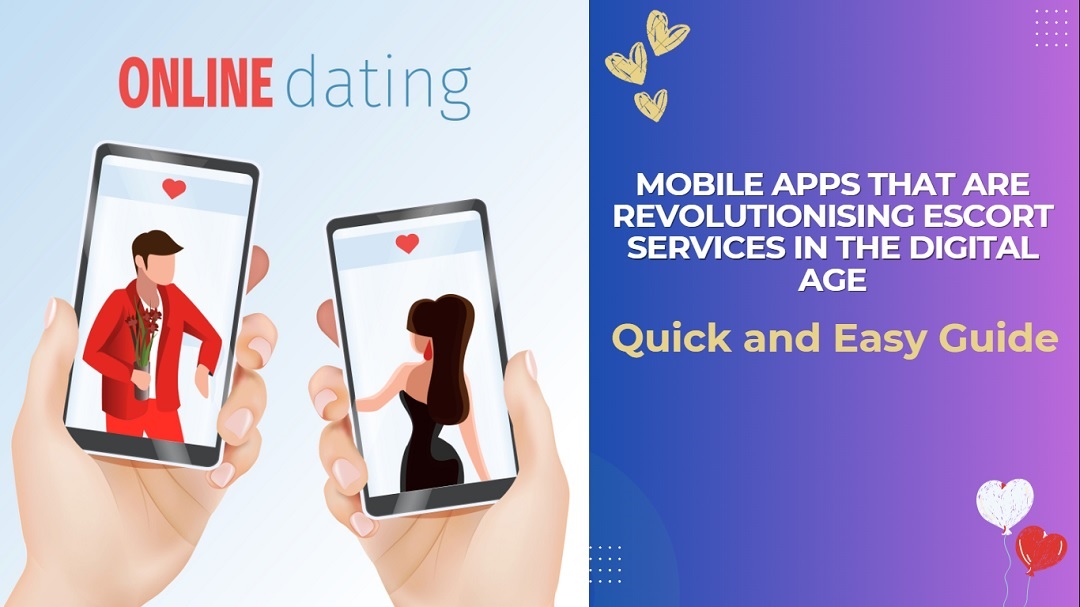
Last updated on : May 23rd, 2025 by R Yadav
The digital transformation has touched nearly every industry, and the world of escort services is no exception. With the rise of smartphones and on-demand platforms, mobile applications are redefining how clients and service providers connect, communicate, and conduct transactions.
What was once limited to classified ads or discreet agency bookings has evolved into a seamless, tech-driven experience. This evolution not only improves convenience and privacy but also enhances safety and transparency for both parties involved. Popular markets like Sheffield escorts have already embraced these innovations, illustrating how localized services are adapting to global tech trends. In this piece, we'll explore how mobile apps are changing the escort industry, focusing on user experience, safety enhancements, and market regulation.
One of the most significant impacts of mobile applications on escort services is the streamlining of the user experience. With intuitive interfaces and geolocation capabilities, clients can now browse available companions in real time, filter based on preferences, and make bookings with just a few taps. Apps like Tryst, Switter, and Eros leverage sleek design and search algorithms to deliver fast, tailored results that meet user expectations.
For service providers, these platforms simplify profile management, schedule organisation, and communication. Many apps offer built-in messaging, calendar sync, and review systems that empower escorts to manage their professional presence with ease. The convenience of mobile access ensures greater autonomy and allows providers to connect with clients safely and efficiently, no matter where they are.
In an industry where discretion and safety are paramount, mobile apps offer essential tools for protecting both escorts and clients. Most reputable platforms now incorporate features such as verified profiles, two-way rating systems, and end-to-end encryption for chats. These layers of security help build trust and reduce the risks associated with in-person meetings.
Moreover, many escort apps include ID verification, background checks, and block/report functionalities to prevent abuse or harassment. Some even offer in-app panic buttons or discreet check-in options that alert trusted contacts if something goes wrong. By leveraging technology, the industry is gradually shifting toward a safer, more accountable environment.
With ongoing debates about the legal regulation of sex work in many countries, some apps are positioning themselves as tools for compliance and empowerment. Decentralised platforms using blockchain technology are gaining attention for their potential to protect anonymity while ensuring traceable, legitimate transactions. These systems reduce the need for third-party agencies, giving more control to the individual provider.
In jurisdictions where sex work is legal but tightly regulated, mobile apps help escorts adhere to local laws by managing documentation, tax records, and health certifications within the platform. Some apps even collaborate with advocacy groups to promote best practices and fight stigma within the tech ecosystem. As legal frameworks evolve, tech-driven platforms are likely to play an essential role in ensuring fair and ethical practices.
Mobile applications are undeniably reshaping the escort industry in the digital age. From improving user experience and increasing safety to supporting compliance and decentralisation, these platforms are offering powerful tools for modernising an age-old profession.
Emerging markets like the Surat escort service are beginning to adopt these digital tools, demonstrating how technology can enhance both visibility and professionalism in regions beyond the major metropolitan hubs. As technology continues to evolve, we can expect further innovations that prioritise autonomy, respect, and transparency. The question now is not whether the industry will continue to digitise but how tech can best support the needs and rights of all involved.
Read Next: How to Download and Install an Online Casino App Safely